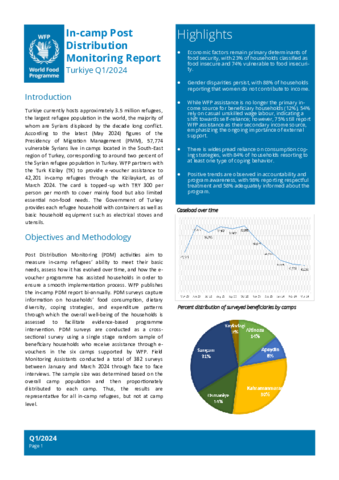
This report shows that economic factors remain primary determinants of food security, with 23 percent of households classified as food insecure and 74 percent vulnerable to food insecurity. There is widespread reliance on consumption coping strategies, with 84 percent of households resorting to at least one type of coping behaviour.
While WFP assistance is no longer the primary income source for beneficiary households (12 percent), 54 percent rely on casual unskilled wage labour, indicating a shift towards self-reliance; however, 75 percent still report WFP assistance as their secondary income source, emphasizing the ongoing importance of external support. Gender disparities persist, with 88 percent of households reporting that women do not contribute to income.
Positive trends are observed in accountability and programme awareness, with 98 percent reporting respectful treatment and 58 percent adequately informed about the programme.
